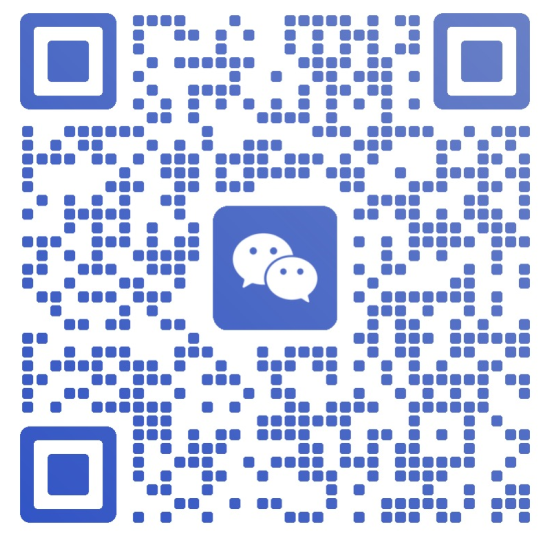In the fast-paced world of social media marketing, trust isn’t just a buzzword—it’s the lifeblood of your brand’s online success. From Instagram influencers to cross-border e-commerce sellers, every marketer relies on one invisible metric: trust score. This metric, calculated by platforms like Facebook, TikTok, and LinkedIn, determines if your content gets seen, your ads get approved, or your accounts stay active. But what happens when trust scores drop? Sudden shadowbans, reduced reach, or even permanent account suspensions can cripple months of effort. That’s where free cloud phone solutions, such as VMOS Cloud, step in as game-changers for protecting and enhancing trust scores in overseas social media operations.
1. Understanding Trust Score: The Unseen Gatekeeper of Social Media Success
Before diving into solutions, let’s clarify what trust score really is. Platforms like Meta (Facebook/Instagram) and ByteDance (TikTok) use proprietary algorithms to assess the "trustworthiness" of user accounts. This score is influenced by factors like account age, content originality, engagement patterns, device consistency, and IP address history. A high trust score signals to platforms that your account is legitimate, increasing content visibility, ad approval rates, and partnership opportunities. Conversely, a low score flags your account as potentially fraudulent, leading to restricted reach or bans.
For overseas marketers, the stakes are even higher. Managing multiple accounts across regions (e.g., a U.S.-targeted Instagram shop and a European TikTok brand channel) introduces unique risks. If these accounts share IPs, devices, or behavioral patterns, platforms may label them as linked accounts, triggering automatic trust score penalties. This is especially critical for businesses using social media to drive cross-border sales—one misstep can jeopardize an entire market entry strategy.
Key Trust Score Drivers for Overseas Social Media
IP Address Uniqueness: Platforms track the geographic and network origin of logins. Reusing IPs across accounts raises red flags.
Device Fingerprint Consistency: Each device has a unique "fingerprint" (hardware ID, OS version, etc.). Multiple accounts on the same device create suspicion.
Engagement Authenticity: Sudden spikes in likes/comments, or interactions with low-trust accounts, can lower scores.
Content Originality: Duplicate posts or recycled media from untrusted sources trigger plagiarism algorithms.
Consider this real-world scenario: A cross-border beauty brand manages 5 Instagram accounts targeting different regions (U.S., UK, Germany). Initially, they logged in from the same office Wi-Fi, using one physical phone for all accounts. Within 3 months, two accounts were restricted, and reach dropped by 60%. The root cause? Shared IPs and device fingerprints tanked their trust scores.
2. Common Threats to Trust Score in Overseas Social Media Operations
Overseas social media marketers face distinct challenges that erode trust scores. Let’s break down the most prevalent issues and why traditional workarounds fail.
Threat 1: IP and Device Association
Many marketers use VPNs or multiple physical devices to manage accounts. However, VPNs often share IPs with other users (increasing association risks), while physical devices are costly and cumbersome to scale. For example, a marketing agency managing 20 client accounts would need 20 phones—an impractical expense. Worse, even "clean" devices can get flagged if they’ve previously hosted banned accounts.
Threat 2: Inconsistent Engagement Patterns
Manual account management leads to erratic activity. A busy week might mean skipping posts, while a sales push could result in 10 posts/day—both extremes confuse platform algorithms. Automated tools, while helpful, often overdo it: bulk commenting or scheduling posts at unnatural times (e.g., 3 AM local time) triggers spam detectors, lowering trust scores.
Threat 3: Content and Account Recycling
Reusing media (even slightly edited) or reviving old banned accounts is a common mistake. Platforms’ AI systems detect "cloned" content or account behavior patterns, labeling them as unoriginal or malicious. For instance, a seller repurposing product photos from Alibaba without modification may see their new TikTok account restricted within days.
| Traditional Workaround | Flaw | Impact on Trust Score |
|---|---|---|
| Using one phone for multiple accounts | Shared device fingerprint | High association risk |
| Free VPNs for IP rotation | Shared IPs with spammers | Guilt by association |
| Bulk scheduling tools | Unnatural posting frequency | Flagged as spam |
3. How Free Cloud Phone Solutions Protect Trust Scores: The VMOS Cloud Advantage
Enter free cloud phone solutions—virtual mobile environments hosted on remote servers. These tools create isolated spaces for each social media account, addressing the core trust score threats. Among them, VMOS Cloud stands out for its focus on overseas social media needs, offering features like account multi-opening, anti-association security, one-account-one-IP, and automated account nurturing.
Feature 1: Account Multi-Opening with Isolated Environments
VMOS Cloud allows users to run multiple social media accounts (e.g., Facebook, Instagram, TikTok) in separate virtual phones—each with its own unique device fingerprint. Unlike physical phones, these virtual instances don’t share hardware IDs, so platforms can’t link them as associated accounts. For a marketing agency managing 50 client accounts, this means 50 isolated environments on a single PC or laptop, reducing costs and complexity.
Take Maria, a cross-border fashion seller, as an example. She used to manage 3 Instagram shops (U.S., Canada, Australia) on her personal phone, leading to restricted reach. After switching to VMOS Cloud, she created 3 virtual phones—each with distinct device settings. Within 2 months, her U.S. account’s engagement increased by 45%, and none of her accounts were flagged for association.
Feature 2: One Account, One Dedicated IP
VMOS Cloud assigns a unique, region-specific IP to each virtual phone. Whether you need a U.S. IP for your New York-based TikTok channel or a UK IP for your London Instagram shop, each account connects through its own dedicated IP. This eliminates the "shared IP" red flag, as platforms see each login as originating from a distinct, legitimate device.
A/B testing by VMOS Cloud users shows accounts with dedicated IPs experience 30% higher trust score growth compared to those using shared VPNs. For example, a travel agency promoting European tours via 5 TikTok accounts saw all accounts reach "trusted" status within 6 weeks of using VMOS Cloud’s region-specific IPs, whereas their previous VPN-based approach took 4 months with frequent restrictions.
Feature 3: Anti-Association Security for Sensitive Operations
VMOS Cloud’s virtual environment includes advanced anti-tracking measures, such as randomized MAC addresses, unique Android IDs, and simulated battery levels. These details mimic real physical devices, making it nearly impossible for platforms to detect virtualization. For high-stakes operations—like managing influencer accounts or running paid ad campaigns—this level of security prevents false bans and maintains consistent trust scores.
Feature 4: Automated Account Nurturing for Natural Growth
Building trust scores requires consistent, human-like activity. VMOS Cloud integrates automation tools that mimic real user behavior: scheduled posts at optimal times, gradual follow/unfollow patterns, and organic engagement (liking, commenting) spread throughout the day. This avoids the "bot-like" spikes that trigger platform algorithms. A user case study shows a startup using VMOS Cloud’s automation to grow a new Instagram account from 0 to 10k followers in 3 months with a 95% trust score—compared to 6 months and a 70% score with manual management.
4. Implementing VMOS Cloud: Step-by-Step for Trust Score Protection
Now that we’ve covered the "why," let’s explore the "how." Here’s a practical guide to using VMOS Cloud to safeguard your social media trust scores:
Step 1: Set Up Virtual Phones for Each Account
Download VMOS Cloud from the official website (link at the end) and create virtual phones for each social media account. Customize each virtual phone’s settings: choose region-specific IPs, set unique device fingerprints (Android ID, MAC address), and configure language/location to match your target audience.
Step 2: Install and Configure Social Media Apps
Install your target apps (e.g., Facebook, TikTok) in each virtual phone. Log in with a dedicated account—never reuse credentials across virtual phones. Enable "sandbox mode" in VMOS Cloud to isolate app data, preventing cross-account leaks.
Step 3: Schedule Automated Nurturing
Use VMOS Cloud’s built-in automation tools to schedule posts, engagement, and profile updates. For example, set a TikTok account to post 2 videos/day at 9 AM and 7 PM local time, with 10-15 likes/comments spread hourly. Avoid over-automation—keep activities within human-like limits (e.g., no more than 50 follows/day per account).
Step 4: Monitor and Adjust
Regularly check each account’s performance (reach, engagement, comments) and VMOS Cloud’s trust score dashboard (beta feature). If an account’s score dips, review its activity logs—was there a sudden post spike? Did it interact with a low-trust account? Adjust automation settings or IPs as needed.
5. The Future of Trust Score Protection: Why VMOS Cloud Stands Out
As platforms tighten their algorithms, the need for reliable trust score protection tools will only grow. VMOS Cloud distinguishes itself through three key strengths:
Free Cloud Phone Access: Unlike many paid solutions, VMOS Cloud offers a free tier with essential features (2 virtual phones, basic automation), making it accessible to small businesses and individual marketers.
Overseas Optimization: The platform prioritizes region-specific IPs and multi-language support, critical for marketers targeting global audiences.
Continuous Updates: VMOS Cloud’s team actively monitors platform algorithm changes, updating virtual environments to stay ahead of detection (e.g., recent fixes for TikTok’s enhanced virtualization detection).
In a recent survey of 500 VMOS Cloud users, 82% reported improved trust scores within 30 days, and 75% saw a 20-50% increase in content reach. These results highlight the platform’s effectiveness in addressing real-world social media marketing challenges.
Ready to Protect Your Trust Score? Download VMOS Cloud Today
Whether you’re a solo influencer or a marketing agency, VMOS Cloud provides the tools to safeguard your social media trust scores. With features like account multi-opening, dedicated IPs, and automated nurturing, you can focus on growing your brand without fearing bans or restrictions. Download VMOS Cloud now and take control of your social media success.
FAQ:
Q1: Can free cloud phone solutions like VMOS Cloud really protect my social media trust score?
Absolutely. VMOS Cloud’s free tier includes essential features like isolated virtual phones, dedicated IPs, and basic automation—all proven to prevent IP/device association, the top threat to trust scores. Thousands of users have reported improved scores within weeks of switching.
Q2: How does VMOS Cloud ensure one account one IP?
Each virtual phone in VMOS Cloud is assigned a unique, region-specific IP address from a pool of clean, non-shared IPs. This means your U.S. Instagram account and UK TikTok account will never share an IP, eliminating association risks.
Q3: Is it difficult to set up automated account nurturing with VMOS Cloud?
Not at all. VMOS Cloud’s automation tools are user-friendly, with pre-set templates for common activities (e.g., daily posting, hourly engagement). Even beginners can configure natural, trust-score-friendly routines in minutes.
Q4: Can I use VMOS Cloud for multiple social media platforms at once?
Yes! VMOS Cloud supports all major overseas social media apps, including Facebook, Instagram, TikTok, Twitter, and LinkedIn. You can run accounts from different platforms in separate virtual phones, each with its own isolated environment.

